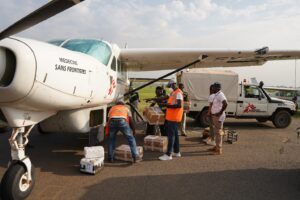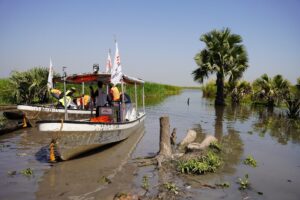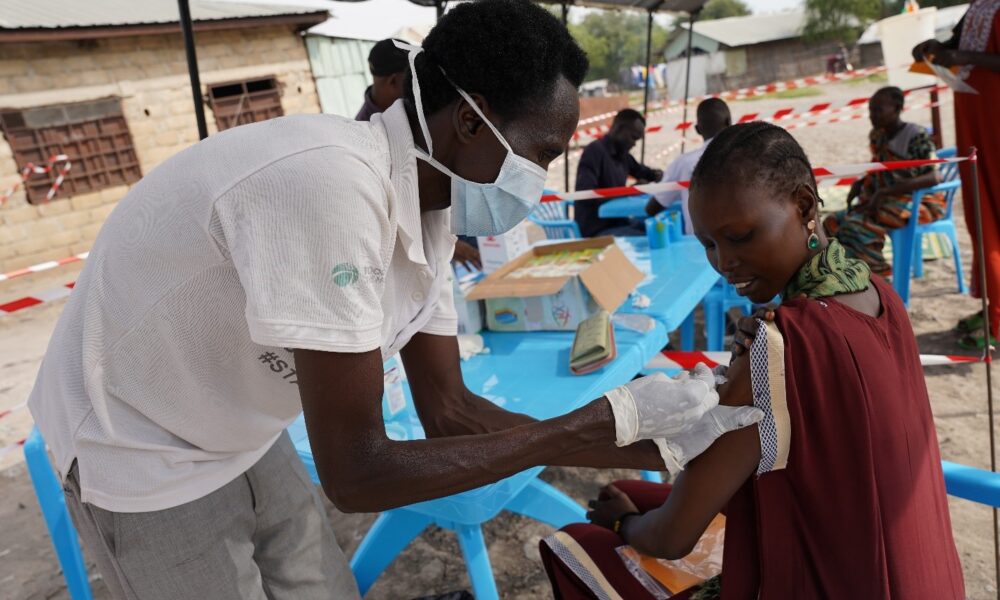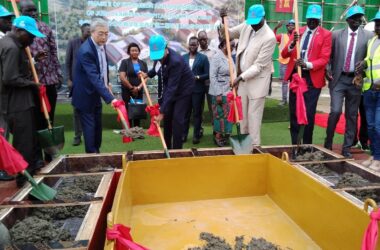By Charles K Mark
Medicine Sans’ Fronteers (MSF) has launched Hepatitis E vaccination campaign in Fangak County, Jonglei State.
MSF, reported that the campaign is targeting about 12,776 women and girls aged 16–45 who are at greatest risk of death from the disease.
According to the report, the vaccination campaign was triggered after 21 people, mainly women, have died of Hepatitis E, since April 2023, and about 501 cases treated at the MSF hospital in Old Fangak, Jonglei State.
The vaccination campaign in Fangak, the first to be conducted during acute stages of an active outbreak and in such a remote and isolated part, is intended to prevent further loss of life.
The agency revealed that fatalities can be as high as 40 percent among pregnant women, with no cure, meaning many at advanced stages of illness do not survive.
Hepatitis E is a waterborne disease that can be fatal.
MSF Head of Mission in South Sudan, Mamman Mustapha, explained that globally, around 20 million people become infected every year, out of which 3,000,000 experience symptoms that require treatment.
He confirmed that not everyone is able to access treatment in good time, especially in countries with limited numbers of health facilities like South Sudan.
“In such locations, even if people do eventually manage to get to a hospital, it is often too late. There is no cure for hepatitis E, and sadly, 70,000 people die from the disease each year. This is why the vaccine is so important—it can save lives.” Mamman said.
Fangak County is situated in an extremely remote area, where people have exceptionally limited access to even the most basic of health care.

“Even getting our routine childhood vaccinations for Old Fangak is a challenge. It is only possible to reach the hospital by boat, using the Nile, or by air,” Mamman added.
Amidst the traveling challenges the airstrip at Old Fangak has been flooded for the past four years.
“We first had to fly the vaccines to a nearby village and then transport them for a further 35 km along the river to our hospital,” he explained.
Mamman lamented that the vaccines require low temperatures, which is only possible at the hospital.
“The vaccines need to be kept between 2 and 8 degrees Celsius, and although this is relatively easy at our hospital, it is a completely different ball game trying to ensure that we do not break the cold chain during the eight hours it takes to reach some of the communities we are targeting with this campaign,” he said.
He recounts the hardship in Fangak villages that were previously accessible by foot have become islands, and people now have no choice but to use canoes to get from one place to another.
“Life was already hard in Fangak County even before hepatitis E began to claim people’s lives. Over the past four years, recurrent flooding has destroyed people’s crops and drowned their cattle,” he explained.

The MSF head of mission revealed that cases of malaria have also increased due the failure of floodwaters to recede as pools of stagnant water created perfect breeding ground for mosquitoes.
In addition to Hepatitis E and Malaria cases, Fangak is also struggling with malnutrition.
“At the same time, cases of malnutrition have risen as people have had to change their diets – either learning to fish or resorting to eating waterlilies to survive,” MSF boss revealed.
He noted that the search for water lilies for consumption put the lives of those hunting for the wild food at threat.
“Now, they are facing a new threat as hepatitis E spreads through the water that they drink and rely on for survival,” Mamman said.




